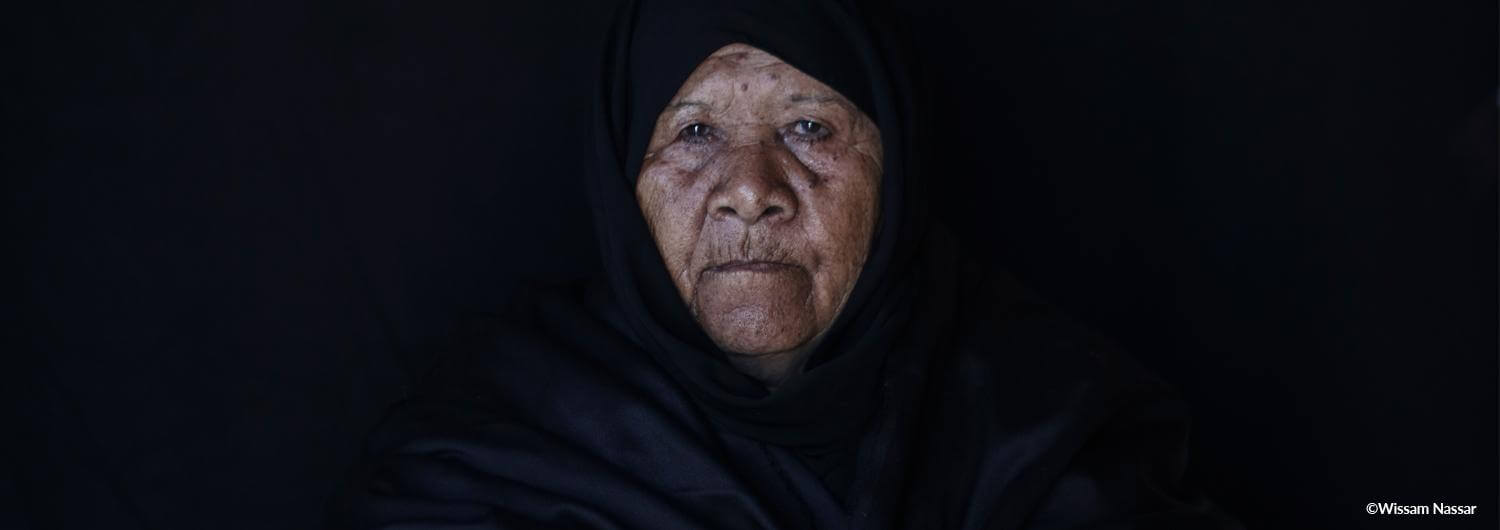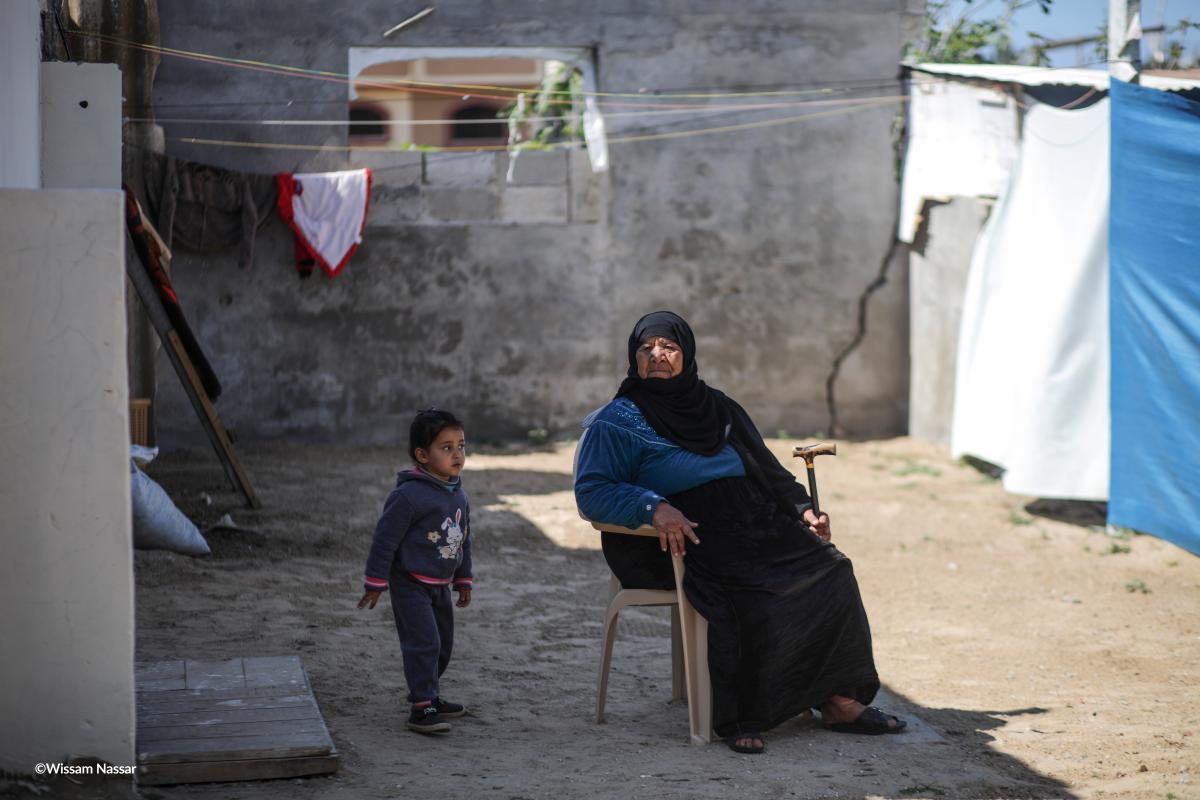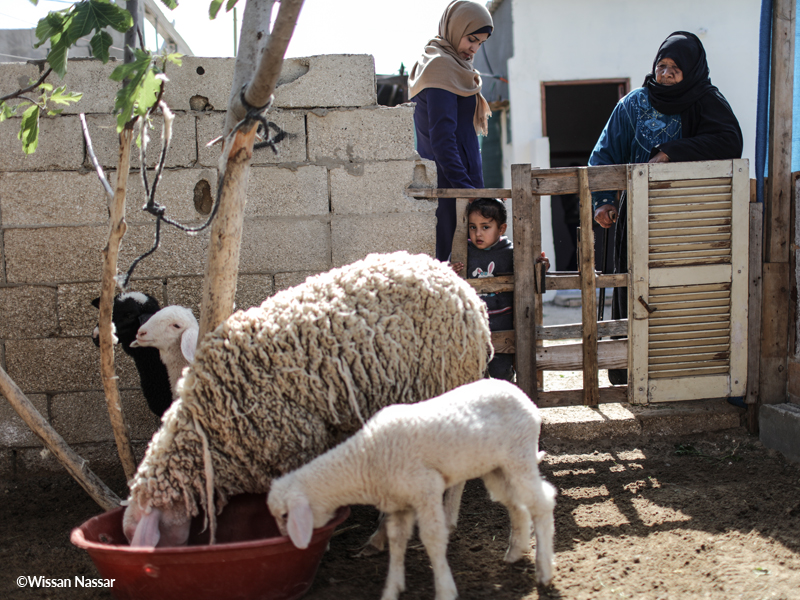Stories
Asbita and Wedad- Ten Readings of a Blocked Decade

#OpenGaza
‘Have you ever tried wood fire tea?’, Asbita asks with a smile. ‘Come in, the kettle is ready.’ Asbita apologizes about the modesty of her house, as her daughter-in-law, Wedad, pulls up a plastic chair for me. The 2014 hostilities had a destructive impact on this family. When a warning missile hit the house, Asbita’s 13-year-old grandson was killed. Asbita and her son’s family of four children now live in the only two rooms that were not destroyed. ‘We also lost our sheep, chickens and rabbits’, Asbita explains. ‘It was the business I took over after my husband’s death.’

This family has been displaced during all three wars, in 2009, 2012 and 2014. Unlike many other couples in Gaza, Wedad and her husband decided to move back together after having been separated during the hostilities. Traditionally in Gaza, a woman is expected to go back to her own parents’ house if her husband is no longer able to cover the family expenses. In such cases, the children would then stay with the father, who remains responsible for them, at his parents’ house. ‘It was too hard to be separated from my husband, he is my rock’, says Wedad. ‘We struggled to keep the children well fed and we reduced our own meals. We did not care about the quality of the food. We just did not want them to go hungry.’
Even before the last war in 2014, as Wedad gradually took over responsibilities from Asbita who became ill, she went through many rough days to support the family. ‘I had to save up to buy milk for my children. Food in general had become more expensive and scarcer since the beginning of the blockade.’ Despite the heavy losses during the last hostilities, the family resumed the sheep rearing business after the war with Action Against Hunger’s cash assistance. Asbita now takes care of the financial side of things, while the animals are Wedad’s responsibility. The ladies explain what they learned in the Action Against Hunger training: ‘We were taught to make sound business decisions like buying fodder in bulk to ensure availability and avoid sudden price increases. With the first payment, we prepared the barn, and with the second one we bought the sheep.’
Despite the heavy losses during the last hostilities, the family resumed the sheep rearing business after the war with Action Against Hunger’s cash assistance. Asbita now takes care of the financial side of things, while the animals are Wedad’s responsibility. The ladies explain what they learned in the Action Against Hunger training: ‘We were taught to make sound business decisions like buying fodder in bulk to ensure availability and avoid sudden price increases. With the first payment, we prepared the barn, and with the second one we bought the sheep.’
The family already has future plans for the business. They want to expand into poultry and rabbits again and reach full independence; free from external aid. Wedad tells me how reassured she is now that she can offer her children vegetables, fruits and even meat up to twice a week.‘A friend recently asked me for tips on how to create her own business’, Wedad smiles. ‘I offered her my business plan!’
JOIN US
Donate now
Your donation will reach those who most need it
Become a member
Join the generation that can bring an end to hunger
Donate via SMS
send HAMBRE to:
- 28010(1.2€)
- 38010(6€)
- 38012(3€)
Full donation to our projects. Valid for Movistar, Vodafone, Orange and Yoigo